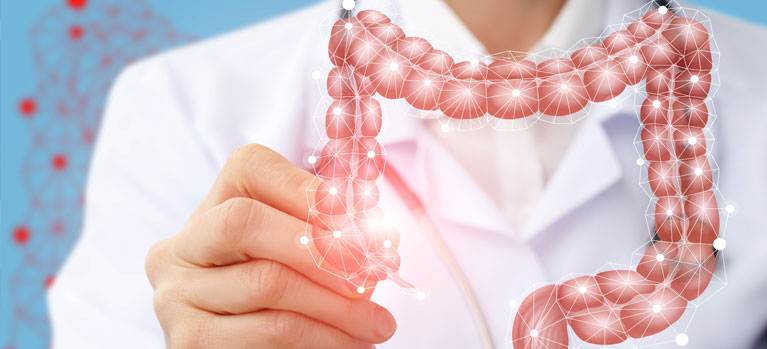The Importance of Maintaining a Healthy Gut
It’s surprising how much you can tell about your overall health from the condition of your gut. The state of your gut has been known to have a direct correlation between overall health and wellness and can even indicate problems in other parts of the body. Because research indicates that 70 percent of the immune system may be found in the gut, paying attention to your gut health is incredibly important because problems with the gut can be the first signs of problems elsewhere in the body. If you are experiencing gastrointestinal problems, your gut may be trying to indicate a mild or serious problem. Here are a few of the ways that gut health and overall health are connected
1. The Link Between Gut Health and Depression
The gut is sometimes referred to as “the second brain,” thanks to a multitude of studies indicating a strong link between gut health and brain health. From depression and anxiety to brain fog and fatigue, your bathroom habits and the presence of other gut-related conditions like the rapid onset of nausea, vomiting, acid reflux, abdominal pain, constipation, or diarrhea can tell you quite a lot about your mental health.
How Gut Health Affects the Brain
The link between gut health and brain health indicates the state of our brains and our stomachs have a direct connection. Numerous research studies have indicated that individuals with chronic depression experience frequent bouts of constipation, diarrhea, stomach discomfort, and other gastrointestinal symptoms. This is believed to be caused by the bacteria in your gut since evidence suggests those with depression tend to have higher chances of having gut biomes that contain a large amount of “bad bacteria” or inadequate amounts of “good bacteria.” An imbalance of gut bacteria can lead to many additional side effects, including:
-
Acid Reflux
-
Delayed Digestion
-
Delayed Gastric Emptying
-
Flatulence
-
Heartburn
-
Nausea
-
Upset Stomach
-
Vomiting
2. The Link Between Anxiety and Gut Health
As with depression, there’s evidence to suggest a direct link exists between anxiety and gut health. This is again believed to be the result of an imbalance of bacteria, and it makes sense. When you don’t feel well, you can become more agitated, restless, and anxious, so if there’s a chronic or permanent problem in the stomach, the lining of the intestines, or other digestive areas, it’s easy to see how anxiety can become a chronic problem.
3. Celiac Disease and Gastrointestinal Problems
Gastrointestinal problems are the biggest signs and symptoms of food-related autoimmune disorders like celiac disease. Celiac disease is a serious condition in which an individual’s small intestine is unable to ingest gluten, a common ingredient found naturally in wheat, barley, and rye but also as a thickening agent in salad dressings, packaged foods. In individuals with celiac disease, the immune system triggers a response to gluten, and in addition to stomach pain, nausea, vomiting, diarrhea, and constipation, this can also lead to physical symptoms elsewhere, including fatigue, headaches, joint pain and inflammation, and even seizures. Over time, the small intestine can even sustain permanent damage from the ingestion of gluten.
4. Vitamin Deficiencies and Gut Health
If you’re experiencing gastrointestinal issues and food allergies and sensitivities have already been ruled out, it’s possible your symptoms are related to a Vitamin D deficiency. Vitamin D and it is anti-inflammatory and immune system regulating effects can boost your mood and your overall health. Studies have shown a vitamin D deficiency, however, may be linked to Irritable Bowel Syndrome (IBS), colon and rectal cancer, breast cancer, and other serious health concerns.
5. Hormonal Imbalances and Gut Health
The human body produces around 50 different hormones that are essential to the proper function of essential organs and processes. When too little or too much of these hormones are secreted, the result can be a decrease in vitality, focus, and overall health and wellness. One of the ways hormonal imbalances can manifest is through gastrointestinal problems. When the endocrine system (which is in charge of the organs that secrete hormones) isn’t functioning properly, this can also mean the digestive system, circulatory system, and other parts of the body can malfunction. Through a hormone test, your wellness provider can determine whether or not a hormone deficiency or imbalance can be the cause of your gut health concerns.
Ready to change your gut health for the better?
Contact us today to get your body back on track or feeling better than ever before because at New Leaf Wellness, our mission is for our patients to ‘live their best life’. Get started with a totally free consultation or call us at 888-728-7555.
[formlift id=”1749″]











